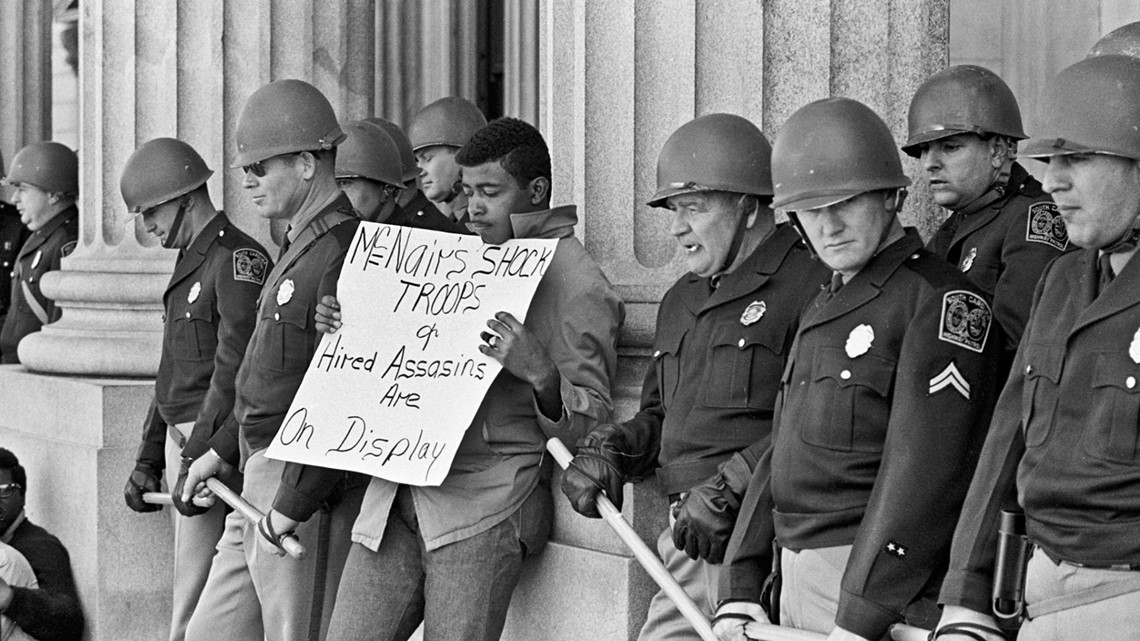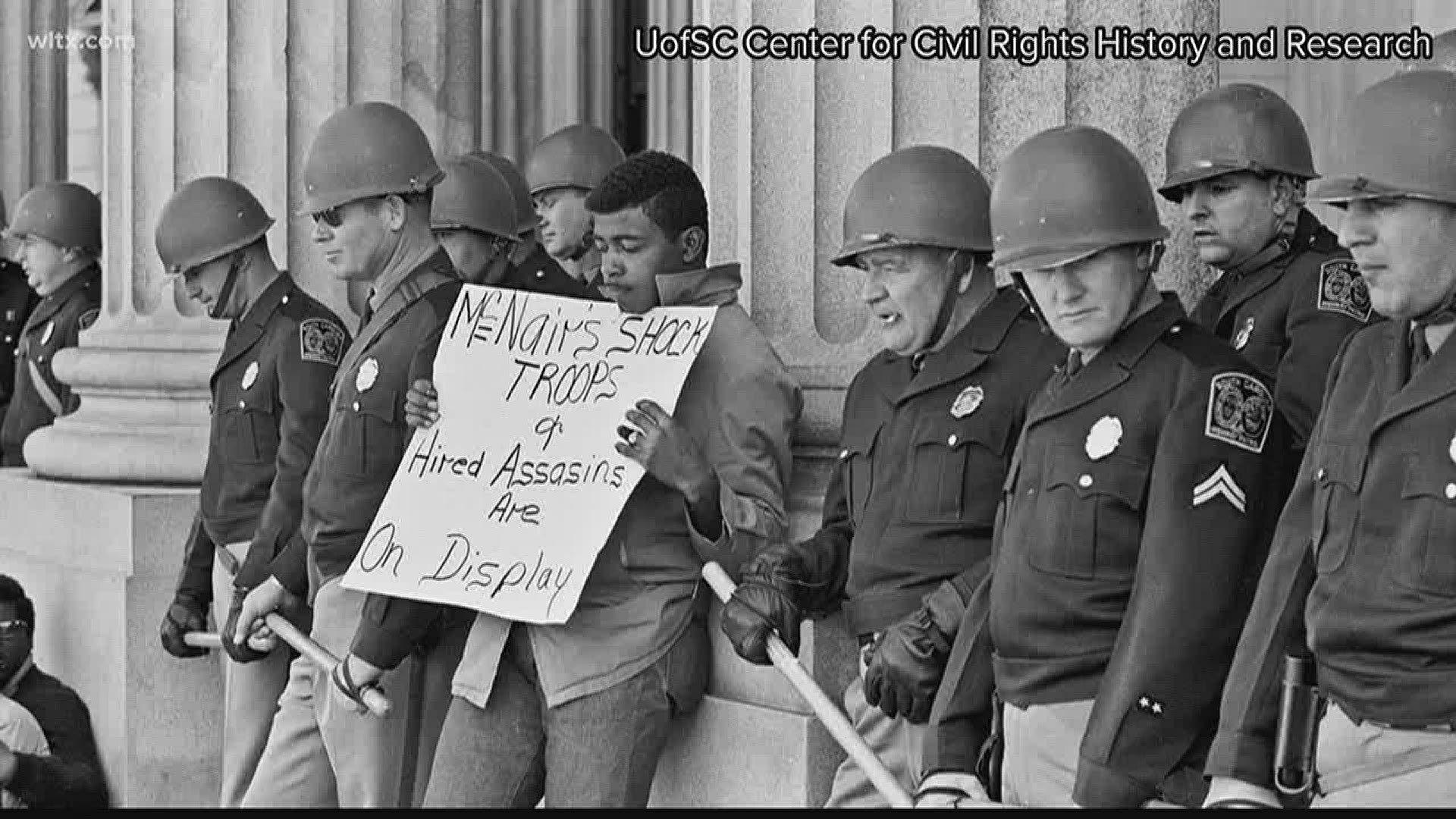COLUMBIA, S.C. — As protests continue in Columbia for the fifth day, many are wondering what the next step will be.
One local civil rights activist is recalling protests from the past to predict what may happen in the future.
Activist and author James L. Felder joined many protests in the 1960's. “We had to protest to get attention and that’s what protesting is all about. Get attention and make people aware.”
Police brutality and civil rights protests are not new to Columbia.
From the 1960's to now, protesters have been marching to the state house for the same thing: equality.


One protester walking downtown this week chanted in her megaphone, “Martin Luther King had a dream in the 1960's, it is 2020 and we are still dreaming!”
Felder says the challenges protesters faced in the past are very different from today.
“We had great obstacles in our way. We didn’t have access to TV, we didn’t have access to smart phones. It took us a while to get organized and get our message out there. Today that’s not the case. In two hours, you can rally 500 people to come to the state house.”
South Carolinians started protesting police brutality over the weekend following the killing of George Floyd in Minnesota. One protester says he won’t stop until he sees change:
“We wake up every single day wondering what the next step of our life is going to be. And that shouldn’t be. So, I’ll be out here with these people every single day being a part of the community being a part of the change doing everything I can to make sure this never happens again.”
Will the protests today create change? Felder says it worked in the past.
“We gained persons elected to positions all over South Carolina and the south. We also began to attack discrimination in employment, hiring and housing. But it all started because of protesting.”
As for the next step, Felder says to take a peaceful approach like they did, “Let’s sit down around the table, mediate, settle our differences and come up with approaches that will eliminate the need to have protests in the future.”

